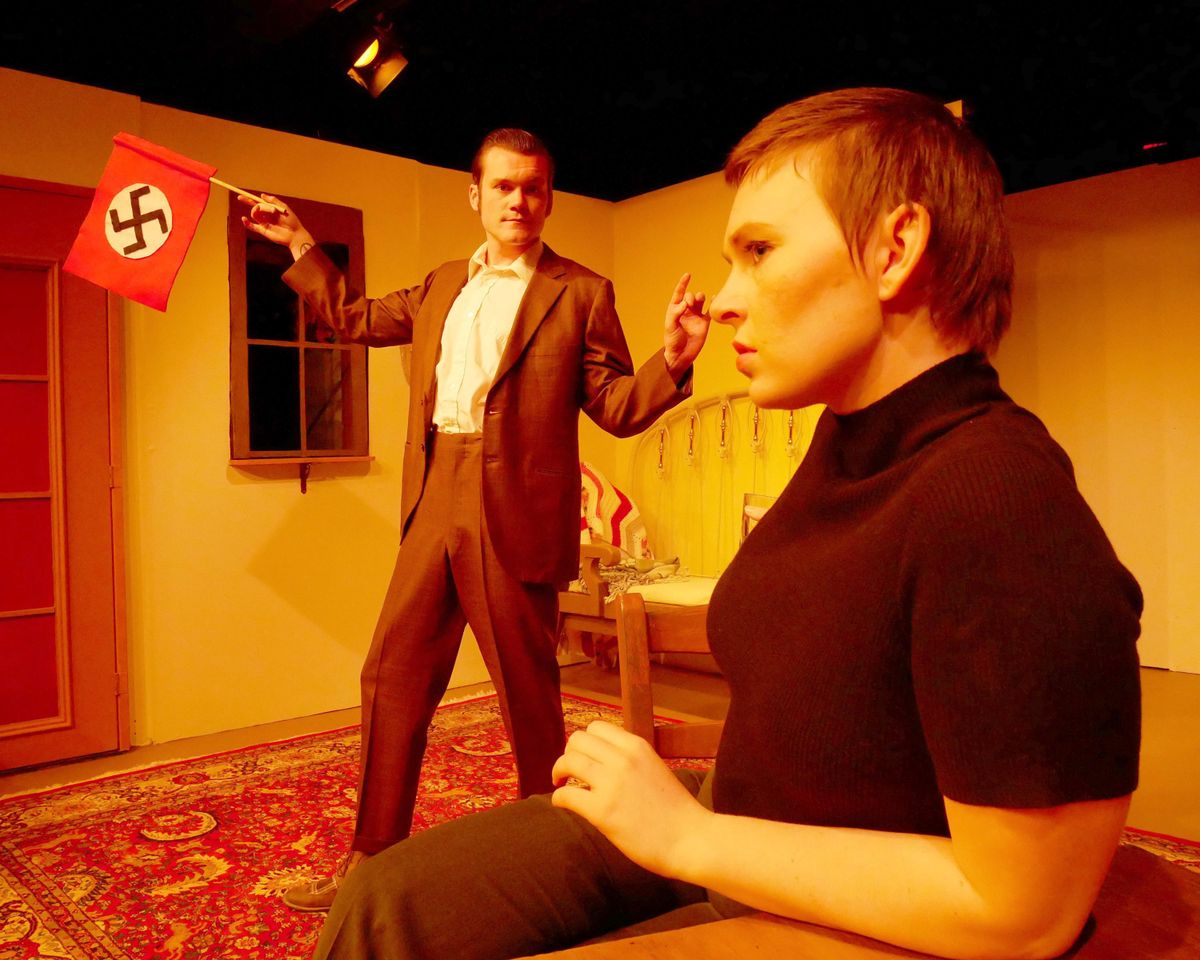‘A Bright Room Called Day’ shows mundane reality of fascism on the rise

This weekend marks the start of Stage Left’s production of “A Bright Room Called Day” by Tony Kushner, author of the Pulitzer Prize-winning play “Angels in America.”
“A Bright Room Called Day” follows a group of friends, five bohemian actors and artists with varying degrees of eccentricity, as they live through the rise of fascism in Germany’s Weimar Republic.
“It’s a perspective we don’t often get,” show director Lindsay Teter said. “We see the world from a soldier’s perspective or a historical perspective, but to see someone just living the day-to-day … how it was such a slow avalanche. It wasn’t as if they woke up one day and Hitler was in charge. That was what I found most fascinating about it – it shows the intimate minutia of things.”
Focused as it is on the daily experience of a few civilians, the show takes place almost entirely in the apartment of Agnes Eggling (Christine Mullaly), a middle-age actress and budding communist party member. After encountering a mysterious old woman (Gail Smith-Reynolds) and survivor of World War I, Agnes and her friends begin to understand and fear the tragedies ahead of them.
The main storyline is disrupted now and then by the musings of Zillah (Katie Pease), a young semi-anarchist living in Reagan-era America.
“She’s a bit of a conspiracy theorist … she draws her own comparisons between her political time and what she is referencing from Weimar Germany,” Teter said.
In his introductory notes, Kushner allows for Zillah’s scenes to be updated; in past productions, directors have chosen to rewrite them to showcase the specific political situations in which they find themselves. However, favoring the original text, Teter decided not to do so.
“I briefly considered contemporizing, but ultimately I thought, with political events being as divisive as they are right now, I wouldn’t want to draw more lines in the sand,” Teter said. “I want this to be a production where no matter what your political leanings you can come enjoy and engage in a conversation rather than an argument … I want people to feel like they’re a part of it and not just coming in and being attacked, whichever side of the political line they fall on.”
Zillah’s interruptions can be jarring, but, throughout these perspective shifts, the play remains focused on the experience of people with little to no power in a complex world of war and politics.
“We tend to think of history as a broad swath, great events and decisive battles, but we don’t think of waking up every morning and turning on the radio and listening to the latest speech or how the most recent directive is going to impact your day-to-day,” Teter said.
Through the directing process, Teter began to feel as if she were there in the apartment with Agnes, and in Stage Left’s 70-seat theater, the audience practically is.
“Watching all the subtle things that lead to these great events that we all know about … being able to remember that these are people like you and me, that they get up every morning, they have a cup of coffee, and they go to work, and they do the best they can to get through the circumstance of the day. It made it so much more human.”